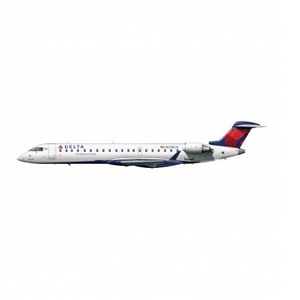Delta signs SAF agreement with Gevo

March 22, 2022
BY Gevo Inc.
Gevo Inc. has signed a take-or-pay agreement with Delta Air Lines Inc. to supply 75 million gallons of sustainable aviation fuel (SAF) per year for seven years. Based on current assumptions, including those around future pricing of commodities and the future values of certain environmental benefits, Gevo estimates that the agreement should generate approximately $2.8 billion of revenue, inclusive of the value from environmental benefits, for Gevo over the seven-year term of the agreement.
The agreement replaces the existing agreement signed with Delta in 2019 to purchase 10 million gallons per year and bolsters Delta’s commitment to incorporating SAF into its operations.
“On behalf of the entire team at Gevo, I want to congratulate our partners at Delta for their leadership in continuously pushing the aviation industry towards net-zero emissions. Delta makes for a great customer, recognizing that big change is needed. I also appreciate their faith in what we are doing at Gevo. Net-zero jet fuels matter. We expect production from our first Net-Zero plant to begin in 2025. To meet the demand that we now have under contract, we need to develop and build more than one Net-Zero plant. This is a happy problem to have,” said Patrick R. Gruber, Ph.D., Gevo’s CEO.
Advertisement
Advertisement
“Net-Zero Fuels are made by using low-carbon feedstocks produced with climate-smart agricultural practices and by eliminating fossil-based energy from the business system as much as possible. In addition, our customers depend on us to count carbon at every step of the process,” said Paul D. Bloom, Ph.D., Gevo’s chief carbon officer, and chief innovation officer. Bloom continued, “By accurately accounting for carbon emissions using Argonne National Laboratories GREET model along with our Verity Tracking platform we will provide confidence to our customers like Delta that scientifically robust and transparent methods are used to meet and measure their sustainability goals. We want to create a win-win value proposition for every participant in the SAF supply chain by tracking all carbon intensity benefits in our SAF.”
“SAF is a critically important lever we have available today to help our industry reduce the lifecycle carbon emissions from aviation fuel,” said Kelly Nodzak, Delta’s director of global jet fuel procurement. “That’s why we are working to develop the market and a broader understanding of the effectiveness of SAF, which can reduce lifecycle emissions up to 80 percent when used in pure form compared to fossil jet fuels.”
“With the right policies and incentives in place, we can unlock a future where sustainable aviation fuel is a viable climate solution that benefits air travel and beyond,” said Amelia DeLuca, Delta’s vice president of sustainability. “SAF production creates good-paying jobs in manufacturing, improves the environmental quality for all, and fosters rural economic opportunity for feedstocks and pathways. It will help us protect the planet we share and the places we call home.”
Advertisement
Advertisement
Gevo has remained focused on sustainability at every stage of production. Gevo has developed two alcohol-to-jet pathways that can utilize various low-carbon feedstocks grown using sustainable agriculture. These feedstocks can then be converted, in some cases, to high-value nutritional products and energy-dense liquid hydrocarbons, including SAF. Gevo’s production processes will incorporate renewable energy, including wind turbines, biogas, and combined heat and power systems (CHP) to increase efficiency and reduce carbon intensity to net-zero levels, which the customer can then pass on through the fuel.
The agreement is subject to certain conditions precedent, including Gevo developing, financing and constructing one or more production facilities to produce the SAF contemplated by the Agreement. A copy of the Agreement between Delta and Gevo has been filed with the U.S. Securities and Exchange Commission on Form 8-K.
Related Stories
The U.S. Department of Energy’s Office of Energy Efficiency and Renewable Energy is soliciting public comments on a preliminary plan for determining provisional emissions rates (PER) for the purposes of the 45Z clean fuel production credit.
On July 17, Iowa’s cost-share Renewable Fuels Infrastructure Program awarded $1.12 million in grants for 20 applicants to add B11 and 4 applicants to add E15 to retail sites. This was the first meeting following the start of RFIP’s fiscal year.
Par Pacific Holdings Inc., Mitsubishi Corp. and ENEOS Corp. on July 21 announced the signing of definitive agreements to establish Hawaii Renewables LLC, a joint venture to produce renewable fuels at Par Pacific’s refinery in Kapolei Hawaii.
A new study published by the ABFA finds that the U.S. EPA’s proposal to cut the RIN by 50% for fuels made from foreign feedstocks, as part of its 2026 and 2027 RVOs, could stall the growth of the biomass-based diesel (BBD) industry.
The European Commission on July 18 announced its investigation into biodiesel imports from China is now complete and did not confirm the existence of fraud. The commission will take action, however, to address some systemic weaknesses it identified.
Upcoming Events










